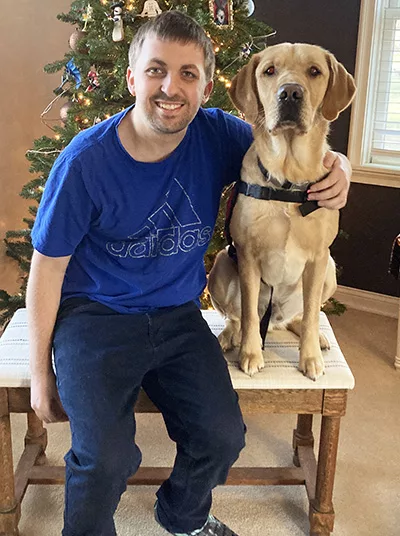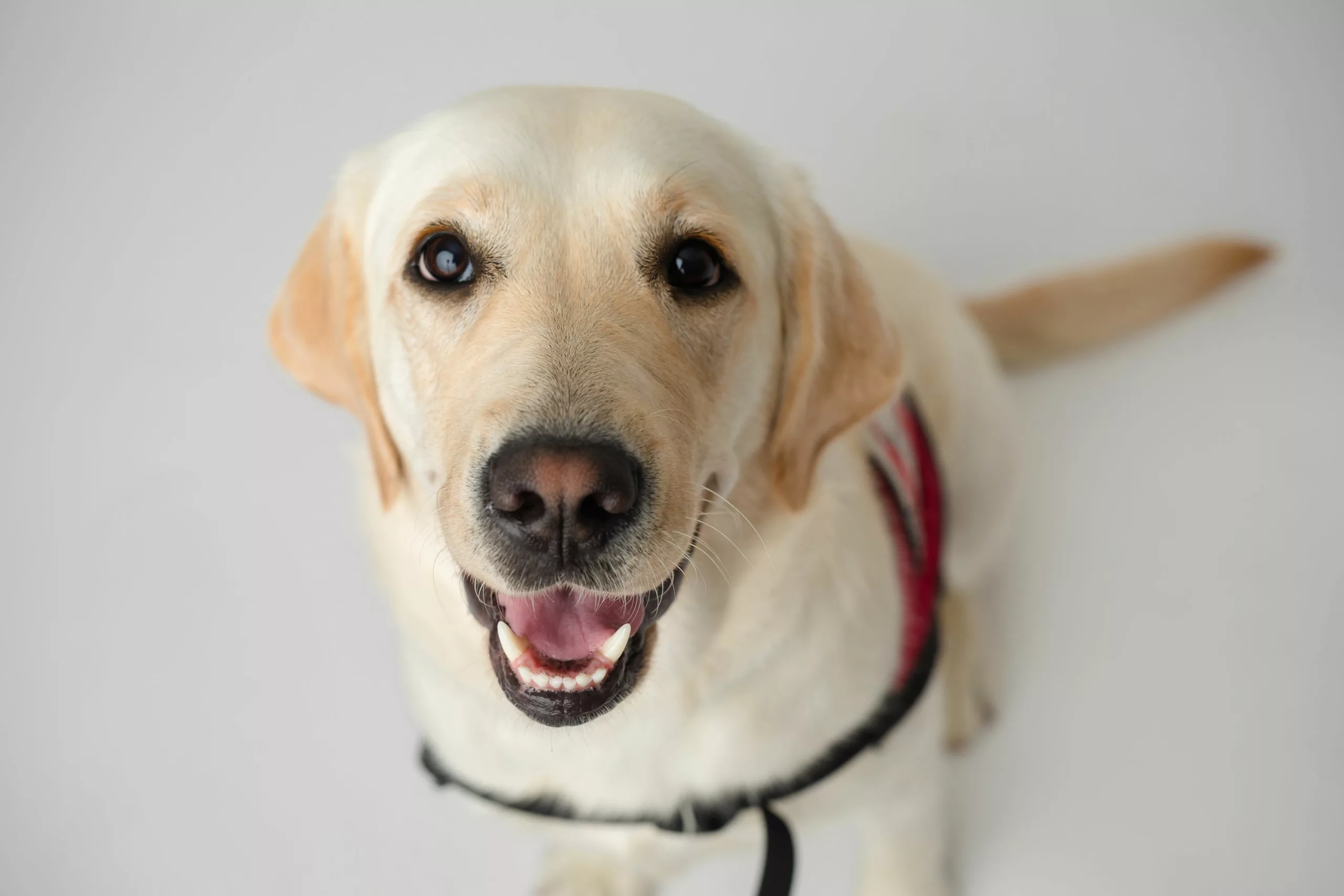“Independence is really what it is.” That’s what Stephanie and Jason, parents to Owen, want for him. Stephanie explains, “We want him to be able to go out on his own and do things without Mom and Dad being there. He is 21 for goodness sake.”
Getting to the point of potential independence has been a long road for Owen, though. As an infant, he was diagnosed with neurofibromatosis, a disorder that causes tumors to form in the body. For Owen, inoperable tumors happened to choose his brain as their nesting ground, resulting in his battle with epileptic seizures. Stephanie says, “The epilepsy really came on strong, like when he was about four or five.” They were able to get them under control enough so Owen was doing all right. “Then it was senior year in high school,” Stephanie notes, “and they hit hard. They were really interrupting his life.”
 So the family interrupted their own life enough to apply for a Can Do Canine, having seen what an assistance dog was able to offer a co-worker of Stephanie’s. Soon, a 3-year-old Goldador (Golden Retriever and Labrador mix) named Gus was snuggling into their lives, hearts, and well … Owen’s bed. Stephanie shares, “A big thing for us was that Owen would have seizures in the middle of the night. We'd run into the bedroom like, ‘Oh my gosh, are you all right?’ We were always on edge, [wondering] ‘Is he going to hit his head? Is he going to choke?’ All these different things, and it's hard. You just don't have a peaceful night's sleep.” Or sometimes, they would sleep through an episode and worry about what might have happened.
So the family interrupted their own life enough to apply for a Can Do Canine, having seen what an assistance dog was able to offer a co-worker of Stephanie’s. Soon, a 3-year-old Goldador (Golden Retriever and Labrador mix) named Gus was snuggling into their lives, hearts, and well … Owen’s bed. Stephanie shares, “A big thing for us was that Owen would have seizures in the middle of the night. We'd run into the bedroom like, ‘Oh my gosh, are you all right?’ We were always on edge, [wondering] ‘Is he going to hit his head? Is he going to choke?’ All these different things, and it's hard. You just don't have a peaceful night's sleep.” Or sometimes, they would sleep through an episode and worry about what might have happened.
Those fears have been put to bed now with Seizure Assist Dog Gus around. Trained to get human help, Gus can fetch Stephanie and Jason to assist Owen when he is seizing. Gus can also roll Owen onto his side and press an emergency button. Stephanie says, “That whole button thing is so cool. If Owen would live on his own, it could be an alert to a nine-one-one call.”
Gus is actually having to retrieve help less than expected. Trained to snuggle on Owen’s shoulder, Gus remains there while Owen sleeps. “We believe Owen is finally resting at night,” says Stephanie. They don’t think he ever fully rested for fear of having a seizure. Now, with Gus as a bed buddy, Owen not only has fewer seizures, but also, they tend to be shorter.
Having Gus has had a profound effect on Owen’s life. Even after just a few months, “It’s really changed Owen,” reports Stephanie. “We've seen Owen feel a little bit more confident just being able to be on his own more.” Owen works full-time as a housekeeper at Ascension NE Wisconsin Mercy Hospital in Oshkosh, Wisconsin. Although Owen is comfortable with the help he can receive from co-workers if he seizes, he may start bringing Gus with him for shifts in the future. In the meantime, he is able to go out with friends more and into the community with Gus by his side. Their favorite place to venture together is Starbucks, because Owen says of Gus, “He loves the smell of the coffee.”
This type of lifestyle did not seem possible prior to Gus. Stephanie says, “A year ago, I don't think Jason and I would've let Owen out of our sight.” With Gus now reducing their anxiety so substantially, she instead believes that Owen living on his own seems probable. “We finally see that for him.” She goes on to mention that Owen can now do activities others often take for granted because of Gus’ assistance, “and it's just incredible for us.”
For such a smooth process of receiving Gus and for all that went into this reality, Owen and his family are awed. Stephanie shares, “We personally see the effects of how much it benefited [Owen]. And there's so many people that went into that. It wasn't just one person; it was hundreds of people that really made this possible for Owen. It warms my heart that there's a lot of good out there and a lot of people that want to help make lives better for individuals that have disabilities. We can't thank people enough.”
Thank you to all those who made this partnership possible:
Whelping Home — Gail Kittock
Puppy Raiser — Anita Boucher & Jeff Bangsberg
Special Thanks — Stanley Correctional Institution, University of Minnesota FETCH Program

 Autism Assist Dog Bonnie Brings Happiness and More to Ellie
Autism Assist Dog Bonnie Brings Happiness and More to Ellie




